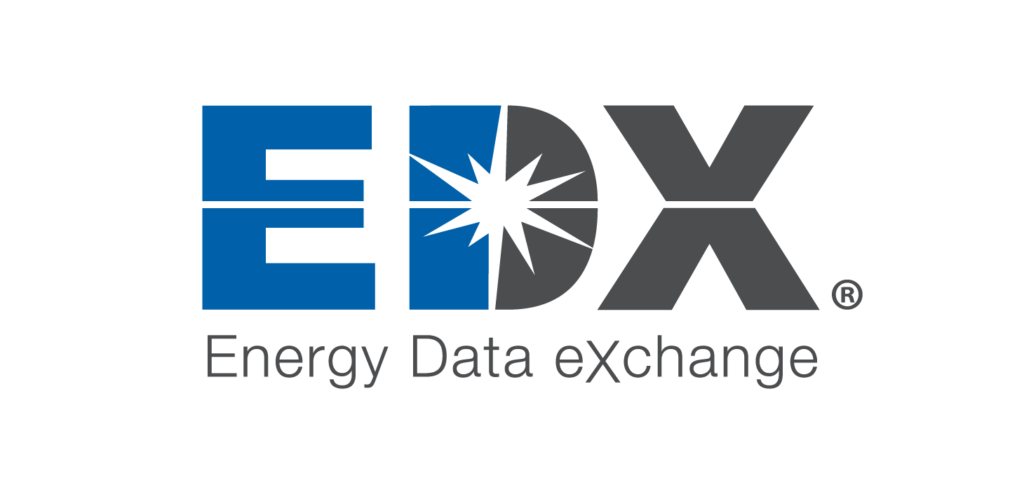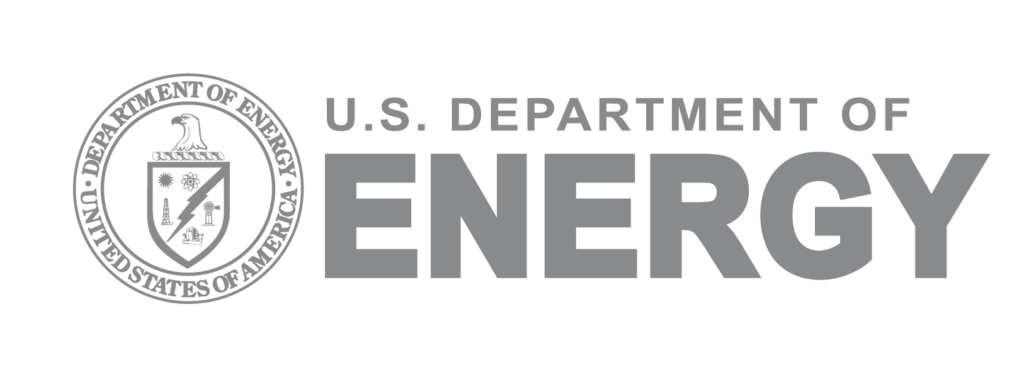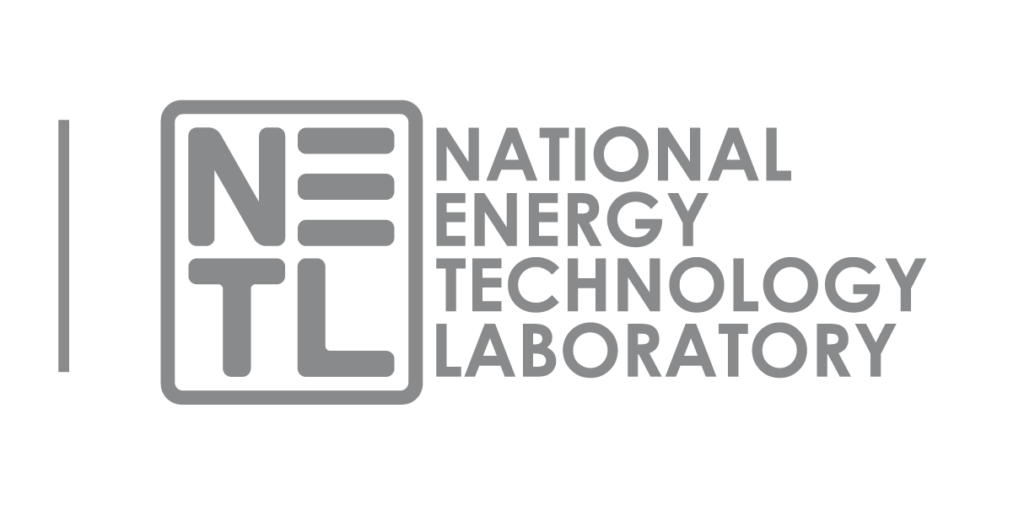Rose, R. Rowan, C., Sabbatino, M., Baker, V., Bauer, J., Creason, C.G., Jones, T.J., Justman, D., Romeo, L., Suhag, A., Yeates, D., and Walker, S., submitted, Developing a Virtual Subsurface Data Framework: Transforming DOE’s EDX data lake using ML/NLP, Annual Meeting 2019, Session: IN020 – Data Integration: Enabling the Acceleration of Science Through Connectivity, Collaboration, and Convergent Science. https://agu.confex.com/agu/fm19/meetingapp.cgi/Paper/596761
disCO2ver
Unlocking data-driven capabilities for the entire CCS community
Home » Bibliographies
Bibliographies
Developing a Virtual Subsurface Data Framework: Transforming DOE’s EDX data lake using ML/NLP
Moving data “rocks” out of hard places: adapting and innovating data science tools to improve geoscience analytics
Yeates, D., Walker, S., Fillingham, J., Sabbatino, M., Suhag, A., Rose, K., Mark-Moser, M., Creason, C.G., Baker, V., submitted, Moving data “rocks” out of hard places: adapting and innovating data science tools to improve geoscience analytics, AGU Annual Meeting 2019, Session IN005 – AI for Model and Data Integration in the Geosciences. https://ui.adsabs.harvard.edu/abs/2019AGUFMIN32B..09Y/abstract
Subsurface Trend Analysis
Rose, K., Mark-Moser, M., Suhag, A. Subsurface Trend Analysis: A methodical framework for artificial intelligence subsurface property prediction. Machine Learning for Unconventional Resources, Nov. 18th 2019, University of Houston, Texas. https://www.osti.gov/servlets/purl/1778138
Cumulative spatial impact layers: A novel multivariate spatio‐temporal analytical summarization tool
Romeo, L., Nelson, J., Wingo, P., Bauer, J., Justman, D., Rose, K. 2019. Cumulative spatial impact layers: A novel multivariate spatio‐temporal analytical summarization tool. Transactions in GIS.00:1–29. https://doi.org/10.1111/tgis.12558
Putting Data to Work: Transforming Disparate Open-Source Data for Engineered-Natural Systems and Models
Creason, C.G., Romeo, L., Bauer, J., Rose, K., Rowan, C., and Sabbatino, M., 2019, Putting Data to Work: Transforming Disparate Open-Source Data for Engineered-Natural Systems and Models, AGU Annual Meeting 2019, Session: IN020 – Data Integration: Enabling the Acceleration of Science Through Connectivity, Collaboration, and Convergent Science. https://www.osti.gov/biblio/1778210
Estimating Carbon Storage Resources in Offshore Geologic Environments
Cameron, E.; Thomas, R.; Bauer, J.; Bean, A.; DiGiulio, J.; Disenhof, C.; Galer, S.; Jones, K.; Mark-Moser, M.; Miller, R.; Romeo, L.; Rose, K. Estimating Carbon Storage Resources in Offshore Geologic Environments; NETL-TRS-14-2018; NETL Technical Report Series; U.S. Department of Energy, National Energy Technology Laboratory: Albany, OR, 2018; p 32. DOI: 10.18141/1464460 https://edx.netl.doe.gov/dataset/estimating-carbon-storage-resources-in-offshore-geologic-environments
Variable Grid Method: An Intuitive Approach for Simultaneously Quantifying and Visualizing Spatial Data and Uncertainty
Bauer, J. R., and Rose, K., 2015, Variable Grid Method: an Intuitive Approach for Simultaneously Quantifying and Visualizing Spatial Data and Uncertainty, Transactions in GIS. 19(3), p. 377-397. https://doi.org/10.1111/tgis.12158
Evaluation of the Economic Implications of Varied Pressure Drawdown Strategies Generated Using a Real-time, Rapid Predictive, Multi-Fidelity Model for Unconventional Oil and Gas Wells
Bello, K., Vikara, D., Sheriff, A., Viswanathan, H., Carr, T., Sweeney, M., O’Malley, D., Marquis, M., Vactor, R.T., and Cunha, L., “Evaluation of the Economic Implications of Varied Pressure Drawdown Strategies Generated Using a Real-time, Rapid Predictive, Multi-Fidelity Model for Unconventional Oil and Gas Wells,” Gas Science and Engineering, (2023) https://doi.org/10.1016/j.jgsce.2023.204972.
A Quantitative Risk Assessment Approach for Developing Contingency Plans at a Geologic Carbon Storage Site
Mitchell, N.; Lackey, G.; Schwartz, B.; Strazisar, B.; Dilmore, R. A Quantitative Risk Assessment Approach for Developing Contingency Plans at a Geologic Carbon Storage Site. Greenhouse Gases: Science and Technology 2023, 13(3), 320-339. https://doi.org/10.1002/ghg.2219.
Evaluating Probability of Containment Effectiveness at a GCS Site using Integrated Assessment Modeling Approach with Bayesian Decision Network
Wang, Z.; Dilmore, R. M.; Bacon, D. H.; Harbert, W. Evaluating Probability of Containment Effectiveness at a GCS Site using Integrated Assessment Modeling Approach with Bayesian Decision Network, Greenhouse Gases: Science and Technology, 2021, 11(2), 360-376. https://doi.org/10.1002/ghg.2056.
Modeling‐Based Assessment of Deep Seismic Potential Induced by Geologic Carbon Storage
Chang, K.W., and Yoon, H., “Modeling‐Based Assessment of Deep Seismic Potential Induced by Geologic Carbon Storage,” Seismological Research Letters, 49(3), 1447–1454, (2023) https://doi.org/10.1785/0220220365.
Joint Physics-Based and Data-Driven Time-Lapse Seismic Inversion: Mitigating Data Scarcity
Liu, Y., Feng, S., Tsvankin, I., Alumbaugh, D., and Lin, Y., “Joint Physics-Based and Data-Driven Time-Lapse Seismic Inversion: Mitigating Data Scarcity,” Geophysics, (2022) doi.org/10.1190/geo2022-0050.1.
NRAP Recommended Practices for Containment Assurance and Leakage Risk Quantification
Thomas, R. B.; Schwartz, B.; Oldenburg, C.; Bacon, D. H.; Gasperikova, E.; Lackey. G.; Appriou, D.; Harp, D.; Chen, B.; Doughty, C.; Burghardt, J.; Pawar, R. J.; Brown, C. F.; Smith, M. M.; Van Voorhees, R.; Strazisar, B. R.; Dilmore, R. M. NRAP Recommended Practices for Containment Assurance and Leakage Risk Quantification; NRAP-TRS-I-002-2022; DOE.NETL-2022.3344; NETL Technical Report Series; U.S. Department of Energy, National Energy Technology Laboratory: Pittsburgh, PA, 2022; p 76. DOI: 10.2172/1906399 https://www.osti.gov/biblio/1906399/
Computational Tools and Workflows for Quantitative Risk Assessment and Decision Support for Geologic Carbon Storage Sites: Progress and Insights from the U.S. DOE’s National Risk Assessment Partnership
Dilmore, R. M.; Appriou, D.; Bacon, D.; Brown, C.; Cihan, A.; Gasperikova, E.; Kroll, K.; Oldenburg, C. M.; Pawar, R. J.; Smith, M. M.; Strazisar, B. R.; Templeton, D.; Thomas, R. B.; Vasylkivska, V. S.; White, J. A. Computational Tools and Workflows for Quantitative Risk Assessment and Decision Support for Geologic Carbon Storage Sites: Progress and Insights from the U.S. DOE’s National Risk Assessment Partnership. 16th International Conference on Greenhouse Gas Control Technologies, GHGT-16, 23-24th October 2022, Lyon, France. https://papers.ssrn.com/sol3/papers.cfm?abstract_id=4298480
Extended Abstract to: Integrating Qualitative and Quantitative Risk Assessment Methods for Carbon Storage: A Case Study for the Quest Carbon Capture and Storage Facility
Brown, C. F.; Lackey, G.; Schwartz, B.; Deane, M.; Dilmore, R.; Blanke, H.; O’Brien, S.; Rowe, C. O’Brien, S.; Rowe, C. Extended Abstract to: Integrating Qualitative and Quantitative Risk Assessment Methods for Carbon Storage: A Case Study for the Quest Carbon Capture and Storage Facility. 16th International Conference on Greenhouse Gas Control Technologies, GHGT-16, 23-24th October 2022, Lyon, France. https://papers.ssrn.com/sol3/papers.cfm?abstract_id=4297575
High-Quality Fracture Network Mapping Using High Frequency Logging While Drilling (LWD) Data: MSEEL Case Study
Fathi, E., Carr, T.R., Adenan, M.F., Panetta, B., Kumar, A., and Carney, B.J., ”High-Quality Fracture Network Mapping Using High Frequency Logging While Drilling (LWD) Data: MSEEL Case Study,” Machine Learning with Applications, Vol. 10 (2022), https://doi.org/10.1016/j.mlwa.2022.100421.
Reduced Order Modeling for Flow and Transport Problems with Barlow Twins Self-Supervised Learning
Kadeethum, T., Ballarin, F., O’Malley, D., Choi, Y., Bouklas, N., and Yoon, H., “Reduced Order Modeling for Flow and Transport Problems with Barlow Twins Self-Supervised Learning,” Scientific Reports, 12, Article 20654 (2022), https://doi.org/10.1038/s41598-022-24545-3.
Possible Controls on Porosity Preservation in the Andaman Forearc Gas Hydrate System
Johnson, J., Rose, K., Torres, M. (2020, Jan). Possible controls on porosity preservation in the Andaman forearc gas hydrate system: OSR, AOM, and/or marine silicate weathering [Conference presentation]. Geologic Society of America Meeting 2020, Session: T99. Records of Early Diagenesis in Modern and Ancient Sediments. https://community.geosociety.org/gsa2020/program/technical
Back to the Future: Rescue, Curation, and Transformation of a Corpus of Carbon Storage Data
Sabbatino, M., Baker, V., Bauer, J., Creason, C., Romeo, L., Rose, K., Rowan, C., Zoch, G., submitted, Back to the Future: Rescue, Curation, and Transformation of a Corpus of Carbon Storage Data, Annual Meeting 2019, Session: AGU Dirty Stories of Data Rescue. https://www.osti.gov/servlets/purl/1778129
Developing a Virtual Subsurface Data Framework: Transforming DOE’s EDX data lake using ML/NLP
Rose, R. Rowan, C., Sabbatino, M., Baker, V., Bauer, J., Creason, C.G., Jones, T.J., Justman, D., Romeo, L., Suhag, A., Yeates, D., and Walker, S., submitted, Developing a Virtual Subsurface Data Framework: Transforming DOE’s EDX data lake using ML/NLP, Annual Meeting 2019, Session: IN020 – Data Integration: Enabling the Acceleration of Science Through Connectivity, Collaboration, and Convergent Science. https://agu.confex.com/agu/fm19/meetingapp.cgi/Paper/596761
Moving data “rocks” out of hard places: adapting and innovating data science tools to improve geoscience analytics
Yeates, D., Walker, S., Fillingham, J., Sabbatino, M., Suhag, A., Rose, K., Mark-Moser, M., Creason, C.G., Baker, V., submitted, Moving data “rocks” out of hard places: adapting and innovating data science tools to improve geoscience analytics, AGU Annual Meeting 2019, Session IN005 – AI for Model and Data Integration in the Geosciences. https://ui.adsabs.harvard.edu/abs/2019AGUFMIN32B..09Y/abstract
Subsurface Trend Analysis
Rose, K., Mark-Moser, M., Suhag, A. Subsurface Trend Analysis: A methodical framework for artificial intelligence subsurface property prediction. Machine Learning for Unconventional Resources, Nov. 18th 2019, University of Houston, Texas. https://www.osti.gov/servlets/purl/1778138
Putting Data to Work: Transforming Disparate Open-Source Data for Engineered-Natural Systems and Models
Creason, C.G., Romeo, L., Bauer, J., Rose, K., Rowan, C., and Sabbatino, M., 2019, Putting Data to Work: Transforming Disparate Open-Source Data for Engineered-Natural Systems and Models, AGU Annual Meeting 2019, Session: IN020 – Data Integration: Enabling the Acceleration of Science Through Connectivity, Collaboration, and Convergent Science. https://www.osti.gov/biblio/1778210






